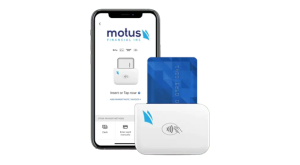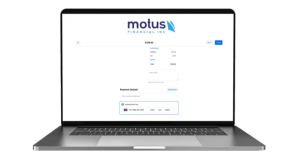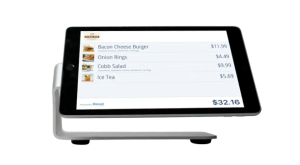How to Choose the Right Merchant Services for Your Small Business
Choosing the right merchant services for your small business is a critical step in ensuring smooth, secure, and efficient payment transactions. As consumer preferences continue to evolve, offering diverse payment options is no longer a luxury—it’s a necessity. Whether you run a small brick-and-mortar store or an online business, you need a reliable merchant service provider that can handle payments efficiently while ensuring security and compliance.
In this detailed guide, we’ll walk you through everything you need to know about Merchant Services For Small Business. We’ll cover what merchant services are, why they’re essential, and how you can pick the best solution tailored to your business needs. By the end of this post, you’ll have a clear understanding of how to make an informed decision that will benefit both your business and your customers.
What Are Merchant Services?
Merchant services encompass a wide range of financial services that allow businesses to accept payments from customers via credit cards, debit cards, and other digital payment methods. These services serve as the backbone of your business’s payment processing infrastructure. Without them, accepting payments would be nearly impossible, especially as consumer expectations shift toward digital and contactless transactions.
Key Components of Merchant Services
- Credit and Debit Card Processing: This is the core function of most merchant services. It allows businesses to accept payments via major card networks like Visa, MasterCard, American Express, and Discover.
- Point of Sale (POS) Systems: These are physical or software-based systems that facilitate in-person payments at your store or office.
- Payment Gateways: For online businesses, payment gateways allow you to securely accept payments on your website or e-commerce platform.
- Mobile Payment Solutions: These services allow you to accept payments via mobile devices, which is increasingly important for businesses that operate on the go.
- E-commerce Integration: If you run an online store, merchant services often come with tools to integrate seamlessly with your shopping cart or e-commerce platform, making the payment process simple and efficient.
Read it also: –10 ESSENTIAL TIPS TO SECURE YOUR MERCHANTS CREDIT CARD PROCESSING
Why Merchant Services Are Crucial for Small Businesses
Regardless of your business size, offering diverse and secure payment methods is critical to maintaining customer satisfaction. For small businesses, Merchant Services For Small Business offer several important benefits:
- Increased Sales: Offering multiple payment methods gives your customers the flexibility to pay the way they prefer, which can increase your overall sales.
- Enhanced Security: With the rise in cybercrime and fraud, secure merchant services help protect your business and your customers’ sensitive data.
- Customer Trust: Providing secure, reliable, and efficient payment options builds customer trust and loyalty.
- Streamlined Operations: Modern merchant services often integrate with other business software, such as accounting systems, making it easier to manage transactions and cash flow.
- Better Customer Experience: Faster, smoother checkout processes make your customers more likely to return, improving retention rates.
Factors to Consider When Choosing Merchant Services For Small Business
There are many merchant service providers to choose from, and selecting the best one for your business requires careful consideration of various factors. Here’s a breakdown of the most important factors to keep in mind:
1. Cost and Fees
Costs can add up quickly when you’re dealing with merchant services. Understanding all the fees involved will ensure that you choose a provider that aligns with your budget. Common fees include:
- Transaction Fees: This is typically a percentage of each sale. Transaction fees can range from 1.5% to 3.5% depending on the provider and the type of transaction (in-person vs. online).
- Monthly Fees: Some merchant service providers charge a monthly fee for account maintenance or access to certain features.
- Setup Fees: These are one-time fees that cover the cost of setting up your merchant account and necessary equipment (such as card readers).
- PCI Compliance Fees: Some providers charge a fee to ensure your business complies with PCI DSS (Payment Card Industry Data Security Standard).
When comparing costs, be sure to look beyond just the transaction fees. Some providers may charge lower per-transaction fees but have higher monthly or setup costs. Weigh these factors carefully based on your business’s transaction volume and needs.
2. Types of Payments Supported
It’s crucial to offer payment options that your customers are comfortable with. Most providers support basic card payments, but you should also look for providers that offer:
- Mobile Payment Options: Customers increasingly prefer to pay via mobile wallets like Apple Pay, Google Pay, and Samsung Pay.
- Contactless Payments: Especially post-pandemic, contactless payments have become a popular and preferred payment method.
- E-checks and ACH Payments: These are electronic funds transfers directly from a customer’s bank account, and they tend to have lower fees compared to credit card transactions.
- International Payments: If you operate a global business, ensure your provider supports international payments and different currencies.
Offering a variety of payment options will cater to a broader audience, enhancing the customer experience and boosting sales.
3. Integration with Your Existing Systems
If you already use accounting software, a point-of-sale system, or an e-commerce platform, ensure that the merchant services you choose integrate seamlessly with these systems. Integration allows for:
- Streamlined Reporting: Automatically sync transaction data with your accounting system, reducing manual data entry and errors.
- Simplified Inventory Management: For businesses with physical products, integrating your POS with inventory management can help you track stock levels in real-time.
- Improved Customer Management: Integration with customer relationship management (CRM) systems allows you to track customer purchases, preferences, and contact information.
Many merchant services offer integrations with popular business tools like QuickBooks, Shopify, and WooCommerce. Check for compatibility with your existing systems before committing to a provider.
4. Security and Compliance Features
Security should be a top priority when selecting Merchant Services For Small Business. Every transaction carries a risk of fraud, so it’s essential to choose a provider that offers robust security features such as:
- PCI Compliance: Ensure the provider is PCI-compliant, meaning they meet the security standards required to protect credit card data.
- Fraud Detection: Look for services that offer fraud detection tools, such as real-time monitoring and alert systems.
- Encryption and Tokenization: These technologies protect sensitive customer data by encoding it so that it can’t be intercepted or misused.
- Chargeback Protection: Some providers offer chargeback protection, which can help you dispute and resolve chargebacks that occur due to fraudulent transactions.
5. Customer Support and Reliability
Customer support is vital when you encounter issues like payment delays, outages, or errors. A good merchant service provider should offer:
- 24/7 Support: This is particularly important if your business operates outside of regular business hours or across different time zones.
- Multiple Support Channels: Choose a provider that offers support through various channels—phone, email, and live chat—to ensure you can get help when you need it.
- Dedicated Account Managers: Some providers offer dedicated account managers who provide personalized assistance and advice, which can be particularly helpful for growing businesses.
6. Scalability
If you plan to grow your business, it’s essential to choose a merchant service provider that can scale with you. Look for a provider that offers:
- Upgradable Features: As your business grows, you may need more advanced features such as subscription billing, analytics, or multi-location POS systems.
- Custom Solutions: Some providers offer custom-tailored solutions based on your business size and industry.
- Contract Flexibility: Choose a provider that offers flexible contracts or month-to-month agreements so you can easily upgrade or switch services as needed.
Types of Merchant Services For Small Business
Not all merchant services are created equal, and the type of provider you choose will depend on your specific business needs. Below are the most common types of merchant services:
1. Traditional Merchant Accounts
Traditional merchant accounts are provided by banks or financial institutions. These accounts allow businesses to accept card payments by directly connecting with credit card networks. They typically offer lower transaction fees than third-party processors but come with longer setup times and more stringent requirements.
- Pros: Lower fees, direct connection to card networks, advanced fraud protection.
- Cons: Lengthy application process, higher upfront costs, possible long-term contracts.
2. Payment Aggregators
Payment aggregators like PayPal, Square, and Stripe are popular choices for small businesses because they’re easy to set up and don’t require a traditional merchant account. However, they often come with higher transaction fees compared to traditional merchant accounts.
- Pros: Fast setup, no monthly fees, easy to use.
- Cons: Higher transaction fees, less personalized support, fewer customization options.
3. Integrated Payment Solutions
Some providers offer payment solutions that integrate with other business tools like accounting software, customer relationship management systems, and inventory management platforms. Examples include QuickBooks Payments, Shopify Payments, and Square’s all-in-one business solutions.
- Pros: Seamless integration with existing business tools, simplified business operations.
- Cons: May be more expensive than standalone solutions, limited flexibility outside the integrated ecosystem.
4. Mobile Payment Solutions
Mobile payment services allow you to accept payments through mobile devices. This option is particularly beneficial for businesses that operate on the go, such as food trucks, market vendors, or service-based industries.
- Pros: Flexibility, lower upfront costs, ease of use.
- Cons: Often higher transaction fees, less robust features compared to traditional POS systems.
Types of Merchant Services
| Feature | Traditional Merchant Account | Payment Aggregator | Integrated Payment Solutions | Mobile Payment Solutions |
|---|---|---|---|---|
| Setup Time | Longer (up to 2 weeks) | Instant (minutes) | Instant (minutes to days) | Instant |
| Transaction Fees | Lower (1.5% – 2.5%) | Higher (2.9% – 3.5%) | Moderate (varies by platform) | Higher (2.5% – 3.5%) |
| Monthly Fees | Yes (varies) | None | Varies | None |
| Scalability | High | Moderate | High | Low |
| Security Features | Advanced | Moderate | Advanced | Moderate |
Frequently Asked Questions About Merchant Services For Small Business
1. What is the best merchant service for a small business?
The best merchant service depends on your specific needs. If you process a high volume of transactions, a traditional merchant account might offer the best value. If you need a simple, easy-to-use solution, a payment aggregator like Square or PayPal may be ideal.
2. Are there any hidden fees associated with merchant services?
Yes, some providers may charge additional fees such as PCI compliance fees, statement fees, and cancellation fees. Always read the contract carefully and ask about any hidden fees before signing.
3. Can I switch my merchant service provider?
Yes, you can change your provider, but be mindful of any cancellation or termination fees. If you’re under contract, you may also need to provide advance notice before canceling.
4. What security features should I look for in merchant services?
Look for providers that offer PCI compliance, fraud detection tools, encryption, tokenization, and chargeback protection. These features will help secure your transactions and protect your business from fraud.
5. How long does it take to set up merchant services?
Setting up merchant services can take anywhere from a few minutes to a few weeks, depending on the provider. Payment aggregators typically offer instant setup, while traditional merchant accounts may take longer due to more stringent application requirements.
6. Can merchant services integrate with my accounting software?
Yes, many merchant service providers offer integrations with popular accounting software like QuickBooks, Xero, and FreshBooks. Be sure to check compatibility with your existing systems.
Contact Us at Motus Financial
At Motus Financial, we understand that every small business is unique, and finding the right merchant service provider is critical to your success. Our team of experts is dedicated to helping you find the best Merchant Services For Small Business—services that are tailored to meet your needs, provide secure payment solutions, and scale with your growth.
Don’t hesitate to reach out for a personalized consultation or a free quote. Call us today at (608) 819-8666 to learn more about how we can help your business thrive with the right merchant services.








 Our POS systems are designed to streamline in-store transactions. With features like inventory management, sales reporting, and customer tracking, our POS solutions help you run your business more efficiently. Our terminals are compatible with various payment methods, including chip cards, contactless payments, and mobile wallets.
Our POS systems are designed to streamline in-store transactions. With features like inventory management, sales reporting, and customer tracking, our POS solutions help you run your business more efficiently. Our terminals are compatible with various payment methods, including chip cards, contactless payments, and mobile wallets.
